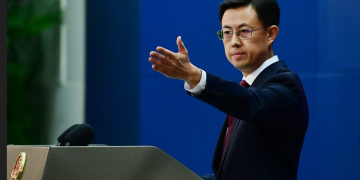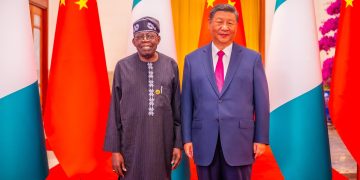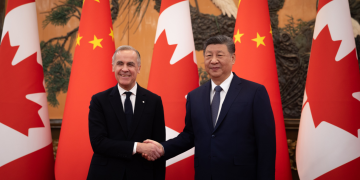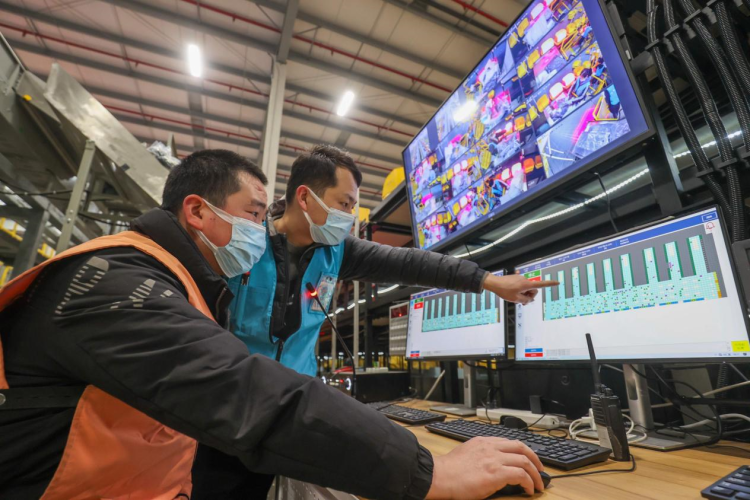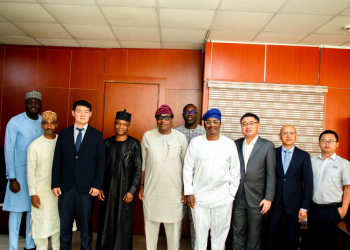China’s gross domestic product (GDP) grew by 8.1 percent year on year to more than 114 trillion yuan (about $18 trillion) in 2021, with an average two-year growth of 5.1 percent, said a statistical communiqué on China’s national economic and social development released by the National Bureau of Statics (NBS) on Feb. 28.
China has remained the second largest economy in the world. Despite multiple challenges including complex international environment, prolonged COVID-19 pandemic and extreme weather events, China’s national economy has continued to recover and its development continuously reached new heights, which fully demonstrated the great prospects of the Chinese economy for high-quality development.
The Chinese economy can only be fully understood with a comprehensive, dialectical and long-term perspective.
Though under huge pressure brought about by changes in the domestic and international economic environment, China’s economy maintained sound momentum, with major macroeconomic indicators remaining within a reasonable range and the characteristics of the economy, including strong resilience, ample potential and sound momentum in the long-term, becoming more evident.
The international community generally believes that China’s economy will continue with recovery and growth this year and inject impetus into world economic recovery.
The promising prospects of the Chinese economy derived from the country’s high-quality development with greater resilience.
Last year, while responding with composure to changes and the pandemic both unseen in a century, China has made new advances in fostering a new development paradigm and pursuing high-quality development, and got off to a good start in implementing its 14th Five-Year Plan (2021-2025).
A worker is busy with production at a factory of Hyundai Doosan Infracore in Yantai city, east China’s Shandong province, Feb. 7, 2022. (Photo by Tang Ke/People’s Daily Online)

In 2021, the country maintained a leading position in the world in economic development and epidemic prevention and control, while intensifying its national strategic strength in science and technology, improving industrial chain resilience, continuously deepening supply-side structural reform, and making solid strides toward green and low-carbon transition and common prosperity.
The bright prospects of the Chinese economy stemmed from constant improvement in the country’s industrial structure.
Last year, China accelerated the transformation and upgrading of its economic structure and continuously improved its industrial structure. While investment in high-tech industries increased by 17.1 percent year on year and the value added of the high-tech manufacturing industry rose 18.2 percent over the previous year, industries including new-energy vehicle, industrial robot, and integrated circuit delivered impressive performance and modern service industry witnessed rapid growth.
Driven by the recently concluded Beijing 2022 Winter Olympics, ice and snow sports are generating increasing economic benefits for the country. A research report predicted that the output value of China’s winter sports will reach 800 billion yuan this year and one trillion yuan in 2025.
A China-Europe freight train loaded with 100 twenty-foot equivalent units of different types of goods, including chemical raw materials, vehicle accessories, and daily necessities, leaves a multimodal transportation center at China-SCO Local Economic and Trade Cooperation Demonstration Zone in Jiaozhou city, east China’s Shandong province, for Mannheim, Germany, Feb. 18, 2022. (Photo by Wang Zhaomai/People’s Daily Online)
Multimodal transportation center at China-SCO Local Economic
Consumption has always been regarded as an important window into a country’s economic vitality. Last year, China’s consumer demands were further unleashed, with final consumption expenditure contributing 65.4 percent to the country’s economic growth. Consumption has become a main driving force for the stable recovery of China’s national economy.
During the Spring Festival holiday in February, China handled 20.84 billion non-cash payments involving 14.9 trillion yuan, up 10 percent and 16.2 percent, respectively, from the same period of the previous year, which signified that the country’s consumption vitality was continuously unlocked.
China’s economic prospects are also a result of the country’s opening-up in pursuit of win-win cooperation with the rest of the world.
Tourists enjoy plum blossoms

In 2021, the bilateral trade volume between China and Russia exceeded 900 billion yuan for the first time, rising 26.6 percent year on year; the total trade volume between China and Africa hit a new high since 2014; China remained the largest trading partner of the European Union (EU), with the total value of imports and exports between the two sides increasing by 27.5 percent over the previous year; and the total value of trade between China and the Association of Southeast Asian Nations (ASEAN) climbed 28.1 percent year on year.
By fully leveraging domestic and international markets and resources and giving play to its advantages of the largest industrial system in the world with the most complete categories and a super-large domestic market, China has not only boosted its own development amid economic globalization, but achieved mutual benefit and win-win results with other countries through high-level opening-up.
The Chinese economy is a sea, not a small pond. With a solid material and technological foundation built through decades of rapid development since the beginning of reform and opening-up, a super-large domestic market and enormous domestic consumption potential, as well as huge human capital and a large pool of talents, the Chinese economy is bound to forge ahead steadily along the road of high-quality development and make new contributions to the steady recovery of the global economy.



